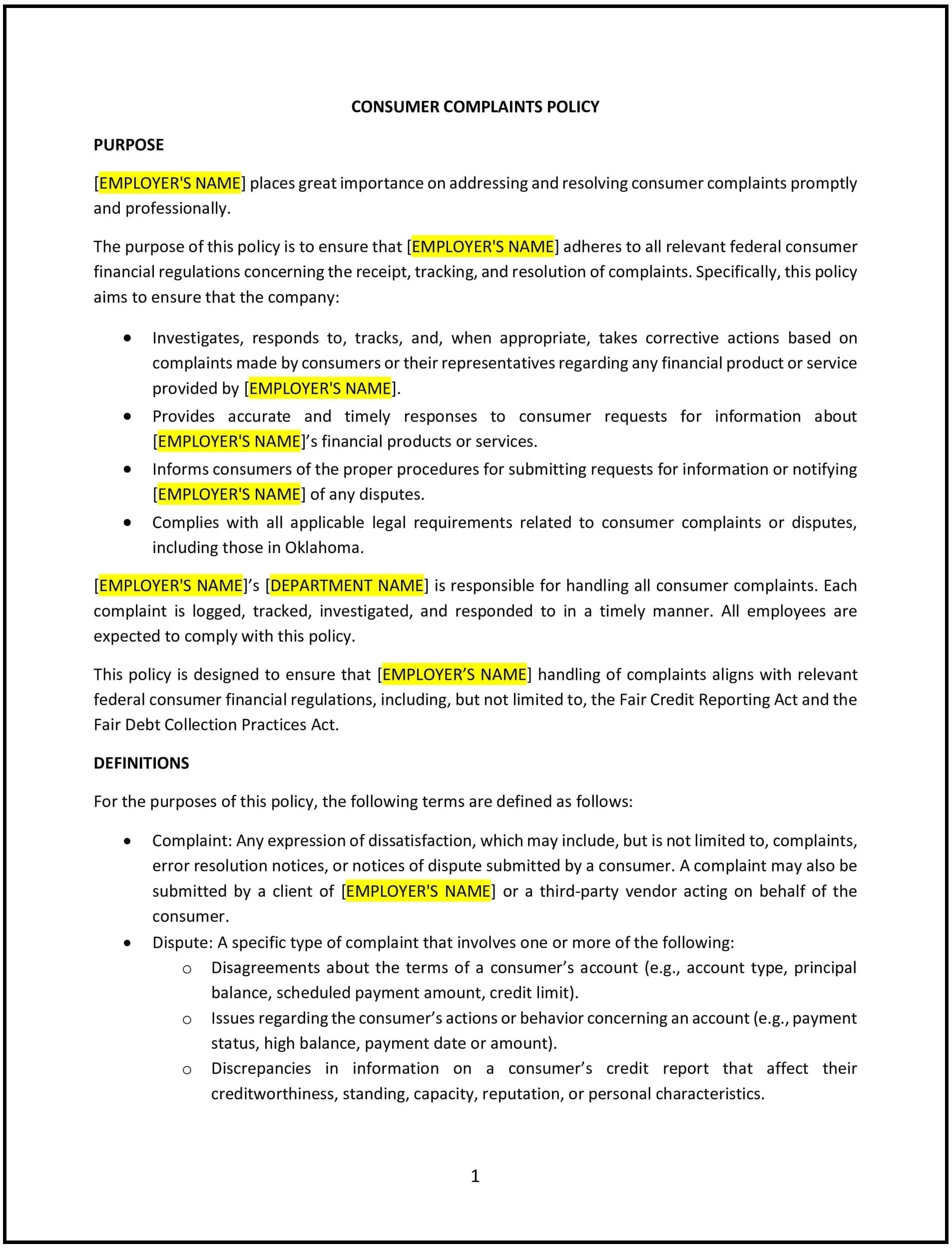Consumer complaints policy (Oklahoma): Free template
Got contracts to review? While you're here for policies, let Cobrief make contract review effortless—start your free review now.

Customize this template for free
Consumer complaints policy (Oklahoma)
This consumer complaints policy is designed to help Oklahoma businesses establish a structured process for handling customer complaints effectively. The policy outlines procedures for receiving, documenting, and resolving complaints to maintain customer satisfaction and business integrity.
By implementing this policy, businesses can improve customer service, strengthen brand reputation, and address concerns in a professional and timely manner.
How to use this consumer complaints policy (Oklahoma)
- Define complaint categories: Specify the types of complaints covered, such as product issues, service concerns, billing disputes, or policy-related grievances.
- Establish reporting channels: Provide multiple ways for consumers to submit complaints, such as online forms, email, phone, or in-person contact.
- Outline response timelines: Set expectations for acknowledging complaints and providing resolutions within a reasonable timeframe.
- Implement tracking and documentation: Require staff to log complaints, responses, and resolutions for record-keeping and quality improvement.
- Assign responsibility: Designate individuals or departments responsible for reviewing and addressing consumer complaints.
- Detail resolution procedures: Provide a structured process for investigating, responding to, and escalating complaints when necessary.
- Review regularly: Periodically assess the policy to align with evolving customer service standards and Oklahoma-specific regulations.
Benefits of using this consumer complaints policy (Oklahoma)
Implementing this policy provides several advantages for Oklahoma businesses:
- Enhances customer satisfaction: Ensures complaints are handled efficiently and professionally.
- Protects business reputation: Demonstrates a commitment to quality service and customer care.
- Reduces disputes: Provides clear guidelines for resolving issues before they escalate.
- Improves operational insights: Helps businesses identify trends and areas for service improvement.
- Reflects Oklahoma-specific consumer protection considerations: Ensures alignment with local laws and customer expectations.
Tips for using this consumer complaints policy (Oklahoma)
- Train employees: Ensure staff understands how to handle complaints professionally and respectfully.
- Maintain records: Keep detailed logs of complaints and resolutions for future reference.
- Monitor trends: Analyze complaint data to identify recurring issues and improve products or services.
- Offer multiple resolution options: Provide refunds, exchanges, or service adjustments as appropriate.
- Communicate clearly: Keep consumers informed about the status of their complaints throughout the resolution process.